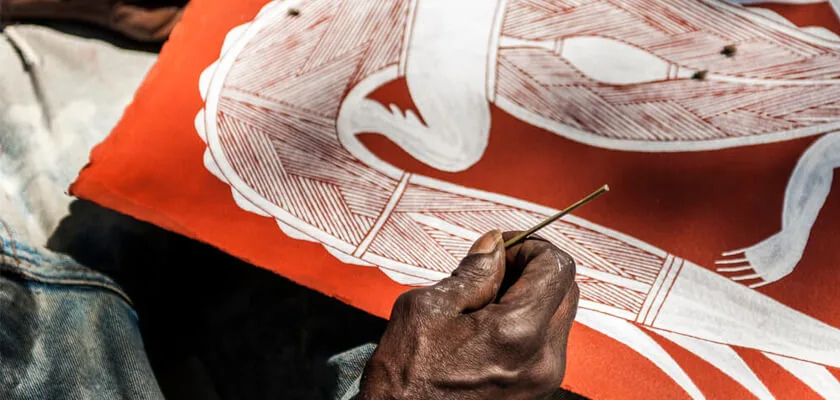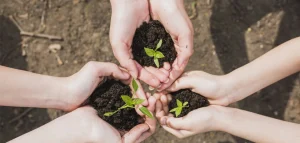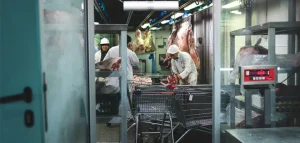
CHC52015 DIPLOMA OF COMMUNITY SERVICES
CHC52015 DIPLOMA OF COMMUNITY SERVICES Face to Face Training Free Job Readiness Program Free First Aid Certificate Register Now! This qualification reflects the role of
This qualification reflects the role of Aboriginal and/or Torres Strait Islander people who work in an Aboriginal and/or Torres Strait Islander Cultural arts context and produce work that shows a well-developed command of technique in their chosen art form.
Aboriginal and Torres Strait Islander Cultural Artist, Employment in a range of Aboriginal and Torres Strait Islander arts contexts.
After successful completion of this qualification, students may have the opportunity to enter into other qualifications in the Australian Meat Processing Training Package.
Students are required to have access to a computer with suitable word processing software and will require access to the internet for research purposes.
Credit may be assigned for the recognition of equivalence in content and learningoutcomes between different types of learning and/or qualifications. Credit reducesthe amount of learning required to achieve a qualification and may be acquired through Credit Transfer or Recognition of Prior Learning (RPL).
Students applying to access funded places will be required to meet the eligibility requirements applicable to the funding program, this may include undertaking a Language, Literacy and Numeracy test.
Students are required to reach a minimum level of English: IELTS 5.5 (with no individual band less than 5.0) or TOEFL 530 or ISLPR 2+. For further advice or assistance, please contact the International Student Manager.
Other IELTS equivalence :
Notes: Tests older than two years are not acceptable
School-Based (VETiS) – offered in Queensland, classroom based (combination of training and assessment delivery methods, including written assessment, portfolio of evidence and practical observation), 6 months full time or 12 months part time. For more information on VETiS please visit the Department of Small Business and Training Website.
Classroom Based (incarcerated students) – offered in Queensland, Classroom based (combination of training and assessment delivery methods, including written assessment, portfolio of evidence and practical observation), 6 months full time or 12 months part time.
RPL – offered in Australia, external based (combination of assessment of written evidence, practical observation and competency conversations), duration and fees will be determined by quality of evidence submitted and amount of gap training required.
School-Based (VETiS) – No student contribution fees are applicable for eligible students. For more information on VETiS please visit the Department of Small Business and Training Website.
Workplace Based (Fee for Service): Administration Fee: $30.00, Tuition Fees: $2,500.00
Workplace Based (Certificate 3 Guarantee – for eligible students) – Contribution Fees: $153.75, Concessional Contribution Fees (for eligible students): $87.75. Refer to the Certificate 3 Guarantee Fact Sheet for more information.


Students must successfully complete all 6 mandatory core units in order to achieve this qualification:
AHCILM306 Follow Aboriginal cultural protocols
CUAATS111 Develop understanding of own Aboriginal and/or Torres Strait Islander identity
CUAATS312 Produce work that expresses own Aboriginal and/or Torres Strait Islander identity
CUAATS411 Communicate effectively in the Aboriginal and/or Torres Strait Islander cultural arts industry
CUARES403 Research history and theory to inform own arts practice
CUAWHS312 Apply work health and safety practices
Students must successfully complete 9 elective units of competency in order to achieve this qualification:
4 must be from Group A
3 must be from Group A and/or Group B
2 may be from the remaining listed electives or any currently endorsed training package qualification or accredited course.
Elective units
Group A
Group B
Elective unit selection may be contextualised to business requirements. All electives chosen must contribute to a valid, industry-supported vocational outcome.
Domestic – Download
Email us on admin@asmitraining.edu.au

CHC52015 DIPLOMA OF COMMUNITY SERVICES Face to Face Training Free Job Readiness Program Free First Aid Certificate Register Now! This qualification reflects the role of

CUA30520 – Certificate III in Aboriginal and/or Torres Strait Islander Cultural Arts Face to Face Training Free Job Readiness Program Free First Aid Certificate Register

CPC30216 – Certificate III in Signs and Graphics Face to Face Training Free Job Readiness Program Free First Aid Certificate Register Now! Signs and graphics

CHC52115 – Diploma of Community Development Face to Face Training Free Job Readiness Program Free First Aid Certificate Register Now! BROCHURES Request a brochure: admin@asmitraining.edu.au FOR

AMP30116 – Certificate III in Meat Processing (Boning Room) Face to Face Training Free Job Readiness Program Free First Aid Certificate Register Now! This qualification

CUA20420 – Certificate II in Aboriginal and/or Torres Strait Islander Cultural Arts Quality Training Increase your employability Gain life skills Access to trainer mentoring and